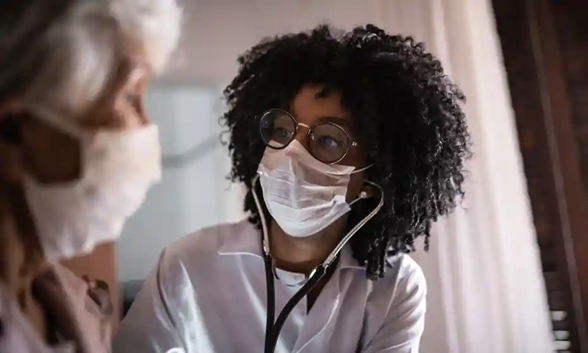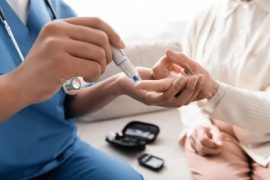Millions of individuals worldwide have had persistent symptoms due to a Covid-19 infection, but the science on the topic is still in its early stages. Researchers are working hard to uncover the various mysteries surrounding Long Covid. Experts investigate how the illness affects various people, determining who is most vulnerable and hunting for new remedies.
Here are the answers to your queries on what we know thus far:
The World Health Organization defines long Covid as “symptoms that endure for at least two months and cannot be explained by another diagnosis.” Symptoms may be new after recovering from Covid, or they may have remained from the first sickness. They may also change or regress with time.
What kinds of symptoms are people having?
If you catch Covid, you have at least a 10% chance of acquiring long Covid; Fatigue, shortness of breath, and cognitive impairment are common symptoms, sometimes known as brain fog. Cough, chest tightness or pain, palpitations, fever, pain, headache, sleep disturbance, dizziness, pins and needles or numbness, delirium in older people, abdominal pain, nausea, diarrhoea, weight loss, joint or muscle pain, tinnitus, earache, sore throat, loss of taste or smell, or even skin rashes are all symptoms.
Are some populations more vulnerable?
According to specialists, one in every ten persons who become infected is in danger of developing long Covid.
Women, according to Dr. Janet Scott, clinical professor at the MRC University of Glasgow’s Centre for Virus Research,
Vaccinated persons, according to research, are less likely to have lengthy Covid.
“There’s at least a 10% probability of acquiring long Covid if you catch Covid,” Dr. Scott stated.
“Women under the age of 50 are regularly identified as being at increased risk.”
What are the gaps in our understanding? What research is being conducted?
A variety of studies are being conducted to determine who is most at risk, how long people may anticipate experiencing symptoms, and potential therapies.
Professor Amitava Banerjee and his colleagues at University College London’s Institute of Health Informatics initiated a clinical trial to see if routinely used medications, such as an over-the-counter hay fever treatment, might help reduce symptoms.
The team hopes to hire 4,500 staff at six hospitals in 10 to 12 months. Participants will be divided into three groups, with one receiving anti-clotting medicines, one receiving anti-inflammatories, and one receiving a mixture of two different antihistamines.
“Where we would like to get to is to be able to say, ‘Based on these symptoms, we think the underlying mechanism is this… we would like to treat you with that… and we think individuals like you get well in six months, or two months, or whatever the trajectory is,” Prof Banerjee told PA. “We’re still a long way from that since patients with lengthy Covid might have so many symptoms.” What we call clustering has been challenging, as has determining the underlying process.
“In our upcoming study, we’re attempting to perform both simultaneously. We are trying to improve our ability to characterize these various categories of people, lengthy Covid clinics in England, and attempt various therapies.
“Whether or not these therapies succeed, they will provide data to support or contradict these fundamental processes.”
Is there help accessible right now?
The first point of call should be a doctor, who can rule out other possible causes of symptoms, such as anaemia, thyroid difficulties, or another respiratory ailment. People can be sent to extended Covid clinics in England, and some can be referred to experts in Scotland.
For individuals with continuing symptoms, the website www.yourcovidrecovery.NHS.uk provides assistance and support.
“This has been set up to offer recommendations regarding specific symptoms, such as sleep, whether to exercise or not to exercise, whether to rest or not to rest,” Dr. Scott stated. She also stated that she has been advocating the book Recovery: The Lost Art of Convalescence. “If you have a lengthy Covid, it’s great to be able to take some actions to optimize life and wellness now rather than waiting for the research,” she noted. “I think the things to do are about healthy convalescence – excellent sleep, decent nutrition, exercise but not too much activity, rest but not too much rest,” says the doctor.





Comments are closed.